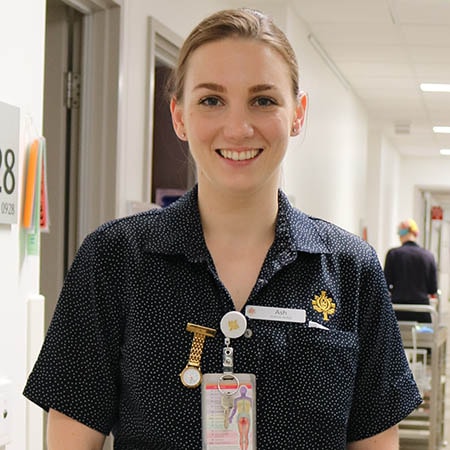Our expert gynaecologist Dr Jane McNeilage shares some insight into ovarian cancer and what women can do to reduce their risk and keep on top of their gynaecological health.
The lack of diagnostic tools means more women proportionally die from ovarian cancer than breast cancer simply because it isn’t usually discovered until an advanced stage.
Approximately 1800 women are diagnosed with ovarian cancer in Australia each year, with one woman dying every eight hours from the disease. While lack of screening options impact the number of cases being detected, vague symptoms also play a part in late diagnoses, due to the fact that symptoms can commonly occur and often be confused with other conditions. However, the main symptoms are: abdominal or pelvic pain/discomfort, bloating, loss of appetite, tiredness and unexplained weight loss.
What is ovarian cancer?
Ovarian cancer begins in the cells in the ovaries or fallopian tubes. For reasons that are not well understood, cells in the ovaries or fallopian tubes undergo malignant transformation and grow out of control. When abnormal growth occurs it can result in several types of ovarian cancers.
However the three most common forms are referred to as epithelial which starts in the cells covering the ovary and affects the greatest number of women with gynaecological cancer – roughly 90 per cent. Germ cell which starts in the cells that turn into eggs. And stromal which begins in the cells inside the ovary that are responsible for producing hormones. As the ovaries are hidden deep in the pelvis they can grow quite large and cancer can spread before it is detected.
Risk factors
Although it remains unknown what the exact causes of most ovarian cancers are, Jane notes that there are some factors that may contribute to a woman’s risk of developing ovarian cancer such as:
- A family history of ovarian cancer – the risk of developing ovarian cancer is higher if one or more blood relatives (such as a mother, sister or daughter) as had ovarian cancer
- A mutation in one of several known genes. Up to 15 per cent of all cases of invasive ovarian cancer involve the inheritance of a mutated gene. Women who have inherited mutations in the BRCA1 or BRCA2 genes have a substantially increased risk of ovarian and breast cancer. Women with Lynch syndrome (also known as hereditary nonpolyposis colon cancer or HNPCC) also have an increased lifetime risk of ovarian cancer
- Obesity
- Increasing age
Symptoms
“It’s important not to rely on risk factors alone however,” states Jane. “If you have any of the symptoms associated with ovarian cancer, especially if they are unusual to you or have become persistent, it’s best to see your GP to have them checked out.”
Ovarian cancer is the leading cause of death from gynaecological cancers in Australia, and because of its silent killer status it’s critical to remain aware of any changes when it comes to assessing your own health and wellbeing.
“Women know their bodies best,” Jane says. “And unfortunately not all symptoms will be present. Some women may only experience as little as two early detectable signs, however awareness and knowing the risk factors can be the key to saving lives,” she adds.
Symptoms can include:
- Abdominal bloating or increased abdominal size
- Abdominal, lower back or pelvic pain and cramps
- Appetite loss, feeling full quickly or indigestion
- Urinary changes such as frequency or urgency
- Changes in bowel habits, such as constipation
- Unexplained weight loss or weight gain
- Unexplained fatigue
Diagnosis
There is no screening test available for ovarian cancer. The diagnosis is usually made by a combination of examination, blood test: CA125 tumour markers, ultrasound scan, CT scan biopsy or surgery.Treatment
Usually involves surgery and chemotherapy.
St John of God Health Care has dedicated oncology services across many of our hospitals that provide holistic care to support the physical, emotional and psychological wellbeing of its cancer patients.
Each unit specialises in providing education, clinical expertise and support for the prevention and diagnosis of cancer.








